Jean-Robert de Cavel, 3 others honored in new class of Great Living Cincinnatians
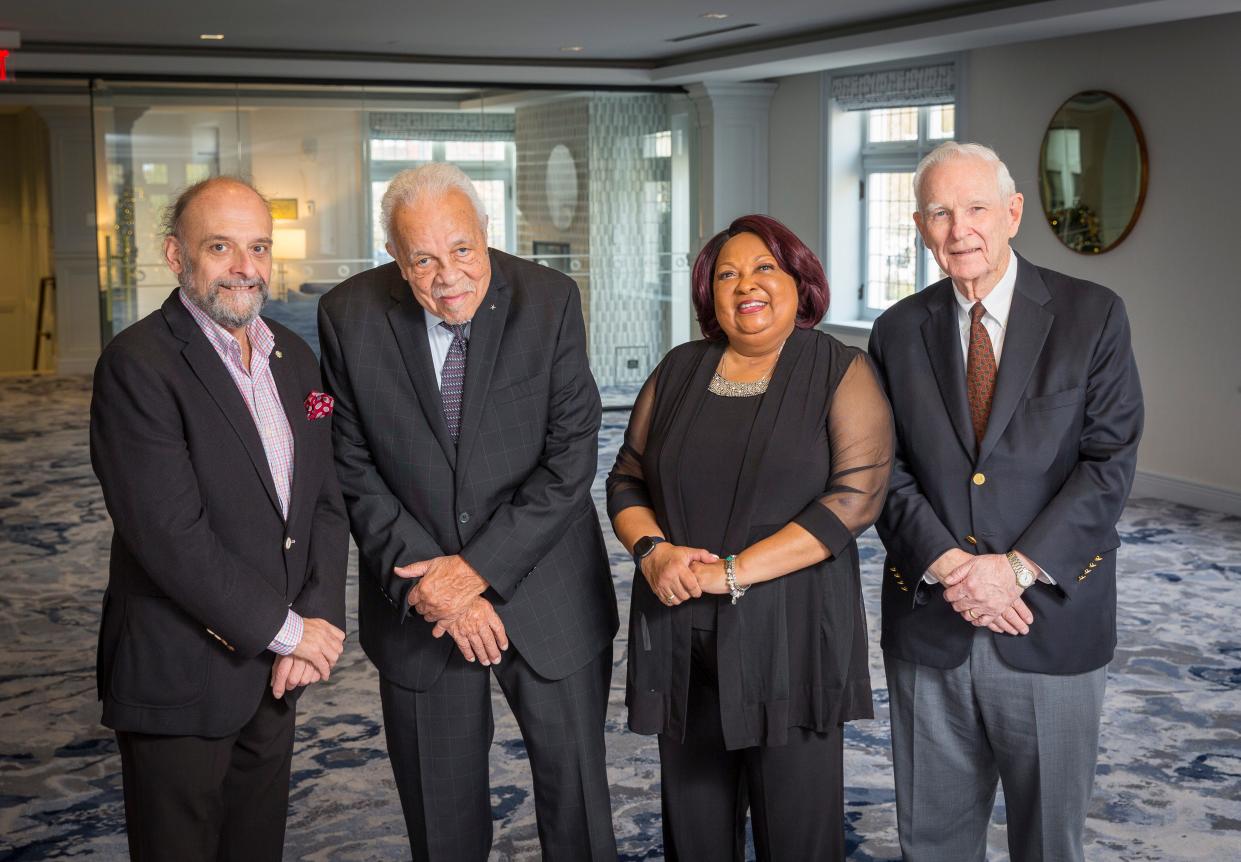
The Cincinnati USA Regional Chamber has announced the four individuals who will be honored as Great Living Cincinnatians in February at its annual dinner.
Selected by the chamber’s Senior Council, Great Living Cincinnatians are recognized for service to the community; business and civic attainment on a local, state, national or international level; leadership; awareness of the needs of others; and distinctive accomplishments that have brought favorable attention to their community, institution or organization.
The Great Living Cincinnatians program has honored more than 160 individuals over 50 years, spanning the business, nonprofit, entrepreneurial, medical and commerce sectors.
Donna Jones Baker
Always act with integrity, be fair to everyone and do everything with intention. That’s the credo Donna Jones Baker has operated by over the course of her four-decade-long leadership career, most recently capped off by a 15-year run as president and CEO of the Urban League of Greater Southwestern Ohio, a position she retired from in 2019.
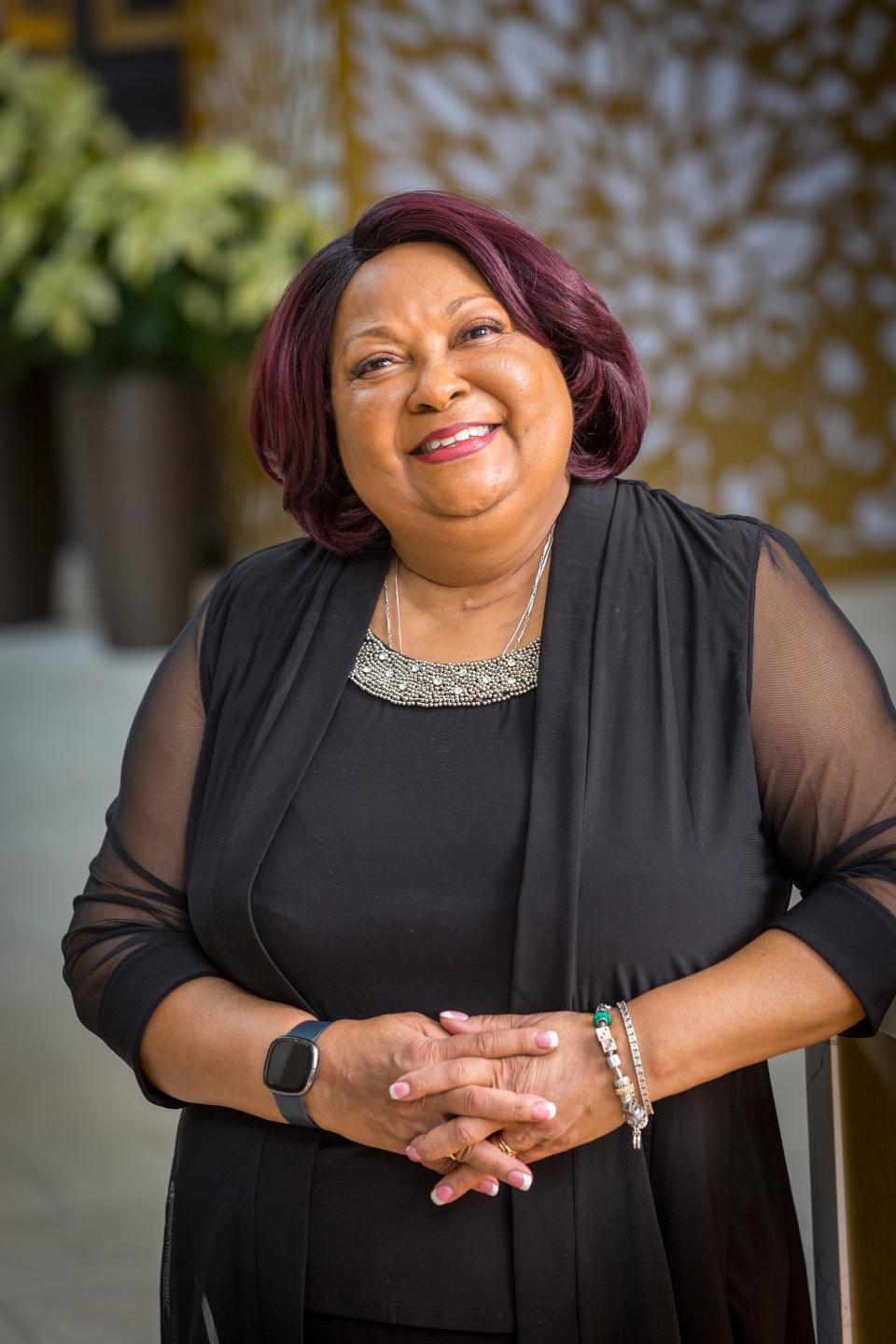
“You don’t just do things – you have to have intention to create or to solve or to initiate. You have to have a reason for being and that’s my motto, if I’ve got one,” said Baker. “I like to think of myself in social justice, as strengthening the community, and you do that by strengthening institutions that strengthen the community, and so that’s how I saw myself.”
That path of intentionality started in 1989, in Baltimore when Baker became executive director of the Associated Black Charities of Baltimore.
“That was my first big job, and I loved it,” she said. “It was Associated Black Charities of Baltimore – a half-million dollar organization with one funder and three staff when I started and when I left, it was Associated Black Charities of Maryland – a $25 million organization, numerous funders and 50 staff. We were the little engine that could.”
When Baker took over leadership, she recalls the board chair telling her the organization was like a typical two-year-old that had to be raised correctly. By the time she left, the organization had given over $60 million in grants. She did much the same at the Urban League, going from a staff of 20 to 75 employees. Also under her leadership, the organization became the Urban League of Greater Southwestern Ohio after merging with the Dayton Urban League.
Born in Paducah, Kentucky, Baker earned a bachelor’s degree in social work from Murray State University, the first person in her immediate family to go college. Her mother told her all along she could do it.
“She let me know that I could do anything that I wanted to do, and so that really came from her, that nudging, that encouragement, that firm belief that I am somebody,” Donna said.
She also earned her MBA from the University of Baltimore, where she was honored with an outstanding alumnus award.
“I got the MBA because I wanted to be the person who made the decisions,” she said. “I felt that I could be a really good leader and when I looked around at those leading organizations, they had MBAs. That one decision, I believe, helped me throughout my career and was pivotal in my work.”
Baker cares deeply about the constituents the Urban League serves, speaking at graduations for programs like SOAR (Solid Opportunities for Advancement and Retention) and staying in touch with mentees. Among her most valued accomplishments at the Urban League were the creation of the Business Development and Entrepreneurship division, the merger with the Dayton Urban League and the publication of two significant Urban League regional reports, “The State of Black Cincinnati” and “The State of Black Dayton”.
Among many other civic endeavors, Baker has also served on several boards, including 13 years on the Cincinnati USA Regional Chamber board, which named her Woman of the Year – Nonprofit in 2014. She is currently on the board of Xavier University and Advocates for Youth Education and is a member of the Cincinnati chapter of the Links Inc. and of Delta Sigma Theta sorority.
In July 2020, Baker underwent a rare dual heart and kidney transplant at the University of Cincinnati Medical Center. She is currently focusing on her recovery, grateful for her home base of Cincinnati.
"I am not a native and the city has embraced me," she said. I am now a Cincinnatian."
3 questions with Donna Baker
What is the best advice you’ve received?
A civil rights giant and dear friend and mentor of mine, Rev. Dr. Marion Curtis Bascom, retired (and now deceased) pastor of Douglass Memorial Community Church of Baltimore, told me to always be kind to people. He said that everyone is going through, or has gone through, some type of trauma in their life and you can’t tell it by just looking at them.
Who is someone in your field whom you admire?
I admire Rev. Dr. KZ Smith, pastor of Corinthian Baptist Church. He works super hard and is always pushing his congregation to do and be better. Recently, with the spate of shootings in the city, he convened a group to think about what the church could do for and with our young people who are hurting.
What do you think is the most important quality for a leader to have?
In my opinion, the most important quality for a leader to have is integrity. Additionally, I have always tried very hard to be fair. I don’t think people want to follow a leader who does not have integrity.
Jean-Robert de Cavel
Jean-Robert de Cavel is a first-name-basis kind of person. There is a welcome, collective affinity in Cincinnati for the man whom even more people refer to, most appropriately in the service industry, as “Chef.”
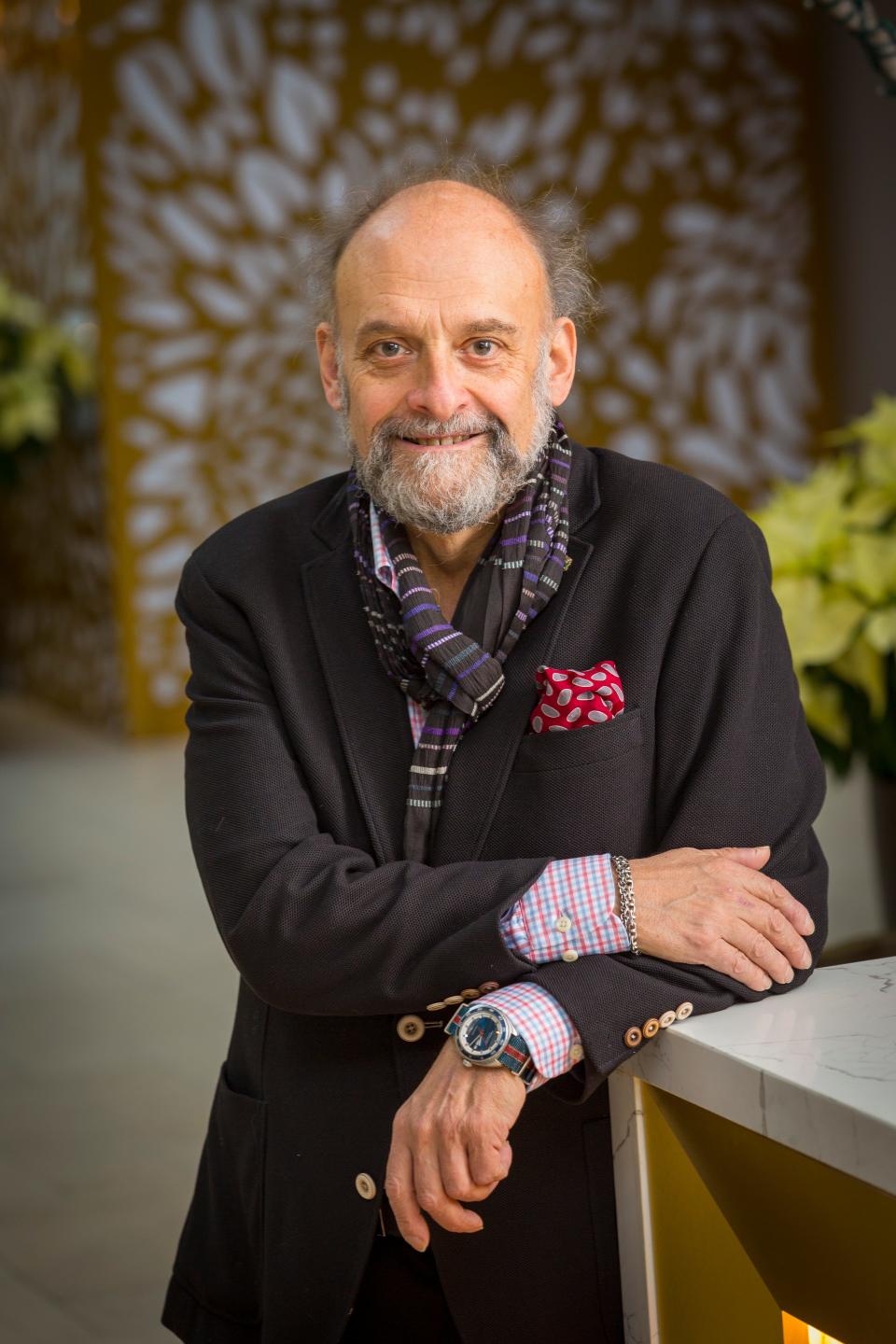
A mainstay in the local culinary world since his arrival in 1993, de Cavel enjoyed a rapid ascent through his adopted home city. But he is quick to give credit to everyone he met along the way.
“That’s something I got very lucky without realizing, the support of everyone,” said de Cavel. “People adopted me very quickly and I think when people adopt you, you feel comfortable. It was easier in Cincinnati to become more myself than it was in New York City.”
Born in France and trained at Le Feguide culinary school in Lille, de Cavel made his way to the states as chef de cuisine at La Regence and La Gauloise in New York City before joining the Maisonette the day after Thanksgiving in 1993, taking over as chef de cuisine before leaving in 2003.
“I did the same thing I would have done anywhere else, which is not try to make the city better, but being proud of what Cincinnati is,” he said.
De Cavel's dedication to the art of food means he has always been ahead of his time, and indelible markers of his personable restaurant legacy remain all across the city. Following his time at the Maisonette, his portfolio of acclaimed restaurants has included Jean-Robert at Pigall’s, Greenup Cafe, Restaurant L, La Bar au Boeuf, Jean-Robert’s Table and French Crust, among others. Earlier this year, Seventh Street at the corner of Seventh and Vine downtown was honorarily renamed Jean Robert de Cavel Way. So what is his secret to success?
“What I do is very simple: You have to be a little bit of a perfectionist, you have to be consistent,” he says. “Consistency is one of the measures of a successful hospitality business. Because then people understand what you want, people understand what your visions are, and then they want to be part of it and help you.”
When de Cavel and wife Annette’s infant daughter Tatiana died from sudden infant death syndrome in 2002, titans of the local service sector (including chefs David Cook, Jimmy Gibson and David Falk) pulled together for a commemorative brunch, raising SIDS awareness and funding for a scholarship in her name. The de Cavel Family SIDS Foundation now annually hosts the Friends & Family brunch at the Midwest Culinary Institute at Cincinnati State Technical and Community College.
In 2018, de Cavel was diagnosed with leiomyosarcoma, an aggressive soft-tissue cancer. In 2019, he was awarded a lifetime achievement award at the American Cancer Foundation Strider’s Ball. He fights with quiet grace and determination.
“It’s another challenge in life,” he said. “It’s something like what we went through with our daughter – what are you going to do? Are you going to give up? Why? You cannot. Giving up is not part of me. You have to take your challenge and do the best you can.”
3 questions with Jean-Robert de Cavel
What’s the best advice you’ve received, in business or otherwise?
In my business what you know is what you learn, take the time to learn. I believe 90% is hard work and the last 10% is 100% luck. Right time, place, opportunity. You cannot do everything! Surround yourself with an amazing team who believe in consistency and caring. We are in hospitality. A dining room with no guests is a restaurant with no future.
Who is someone in your field you admire?
Chef Daniel Boulud who I met in New York City in 1986 when I came as a sous chef and then chef de cuisine at the Plaza Athenee hotel, the same position that he held for a few years before. I never worked under him but he became a mentor, due to his kindness and generosity. He was always there to help me, knowing the position. I followed his journey from chef de cuisine at Le Cirque to a very successful restaurateur of many businesses. You can see that the dedication to his success is based on his passion, knowledge and perfection. Because of his kindness and generosity, Daniel takes life to heart and you know friendship is very important to him. I can share many stories where Daniel made me feel so welcome and touched my heart many times. On top of this all he is the reason I became a Cincinnatian and indirectly took his philosophy.
What do you think is the most important quality for a leader to have?
Sharing your vision and dedication with your team. You have to be very consistent with what you expect. Taking the time to listen to them and letting them know you trust them. In my field it is very important to also be a teacher, share what you know to help your team to become a leader and chef in their future.
Dr. Charles O. Dillard
Dr. Charles O. Dillard is quick to point out the difference between his name and his father’s – their middle initial – but the similarities are otherwise hard to ignore. The son followed a close parallel to his father over the course of his life: serving in the military, joining him in the medical field, choosing to practice in underserved communities in Cincinnati, and both practicing for just about 50 years.
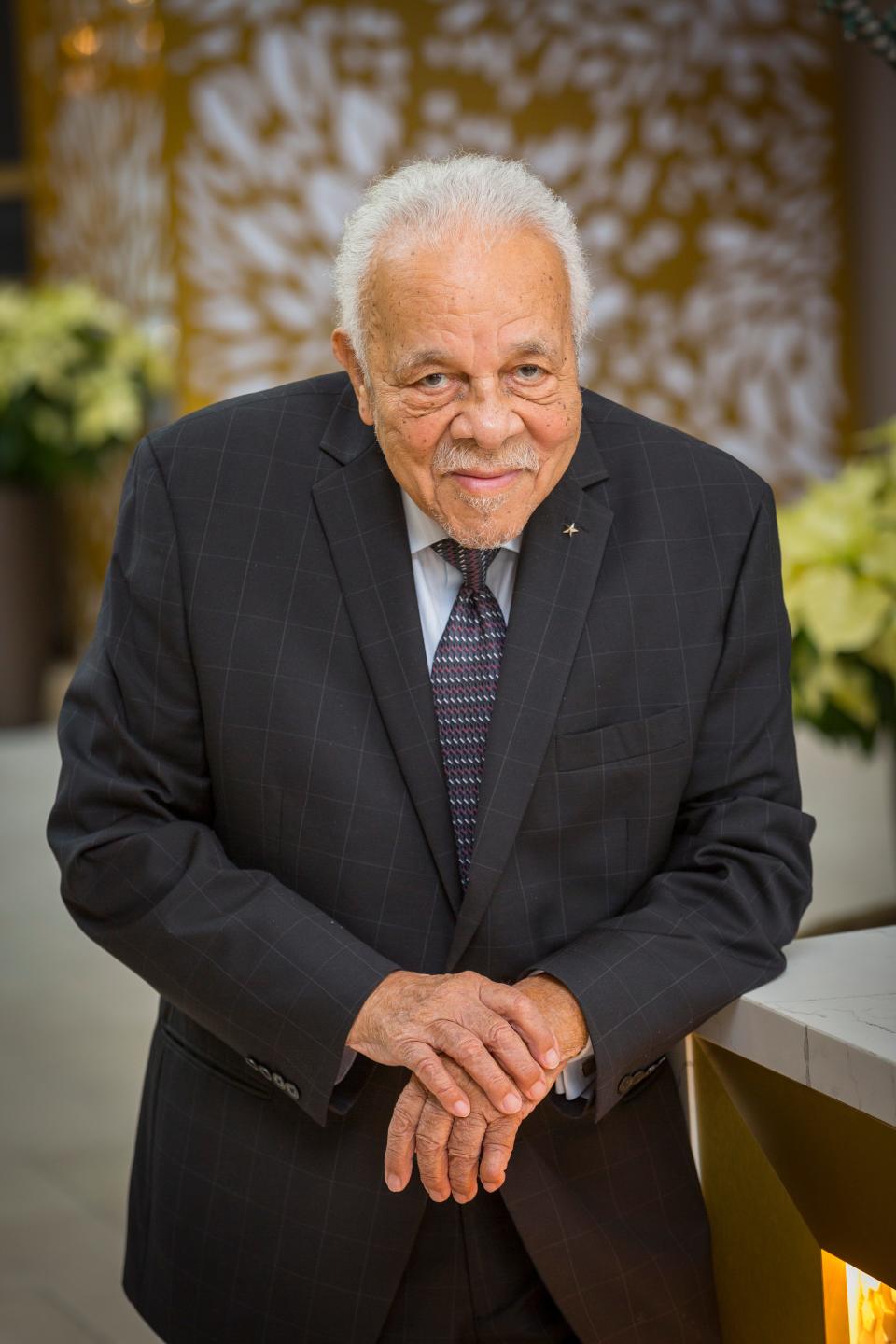
“His practice was in the West End at that time, and he made care available to everyone, and I’ve done the same thing,” said Dillard. “I wasn’t going to come back home because he was a doctor here. I said, ‘Oh, well, he’s already done it, I’ll go somewhere else.’”
For Cincinnatians, it’s a good thing he came back. Dillard has continued to help underserved and disadvantaged communities over the course of his nearly 50-year career, and even now, after retirement, he’s not quite done.
“Well, one of the main things I do now is purchase fruit and give it to areas where kids can’t afford fruit,” said Dillard. “I’ve been giving it to the Boys & Girls Club, a couple inner-city schools, some of the food pantries. (This work) ties into something I do with the military [organization] called Mission Readiness – our aim is to provide food and lobby the politicians to put more money in early childhood education and nutrition.”
A graduate of Fisk University, Dillard (again following his father’s wisely-tread path) went to Meharry Medical College, a historically Black medical school in Nashville, Tennessee. (In his youth, Dillard attended Frederick Douglass Elementary School and Walnut Hills High School, and is now in both of their alumni associations.) After graduation, he served two years via the doctor draft in the army, leaving in 1964. He finished his residency in Detroit in 1967 and returned to Cincinnati, opening an office in Avondale.
“In medicine, I’ve always advocated that healthcare should be a right, not a privilege,” said Dillard. “I just felt that the poor and disadvantaged need quality healthcare and unfortunately, to those without the means, it’s rationed. Money talks and buys the best healthcare. I was instrumental in setting up a neighborhood health center where we didn’t turn away the people without health insurance or other resources.”
In the late 1970s, Dillard decided to give military service a try again and joined the Ohio National Guard. He became one of the first African American medical officers in the country to attain the rank of brigadier general. Through his work with Caring Partners International, both as a doctor and as a board member, Dillard serves as a medical missionary (something he has also done through the military in 15 countries) and collects much-needed medical supplies. He remains active in the civic sector, working with A Few Good Men, an organization that supports the Federation of Colored Women’s Clubs, a 100-year-old organization that helps the poor in the city. He also serves as a backup physician for the Clermont County Board of Developmental Disabilities center in Batavia. Dillard is also an active member of the NAACP, the Zion Baptist Church, Alpha Phi Alpha and Sigma Pi Phi.
In 1980, Dillard purchased a building in Walnut Hills to transform into a medical center, which eventually became the community and business center it is today. Once more, his father’s influence lives on.
“I named the building after my father, the Charles E. Dillard Memorial Building,” he said. “I tell people I’m not vain, it’s not named after me, it’s named after my father.”
4 questions with Dr. Charles O. Dillard
What is the best advice you’ve received?
Do unto others as you’d have done to you. Treat people as you’d want to be treated.
Who is someone in your field whom you admire?
I admire Frederick Douglass (civic), Colin Powell (military), and my father and his contemporaries, how they overcame all the odds stacked against them and were able to practice quality medicine.
What do you think is the most important quality for a leader to have?
Be humble. Humility. Be truthful, honest, humble.
In what other ways have you given back to the community?
In my retirement, I started a tree farm, and I’ve been donating trees. Finally the trees are getting so big, I decided that was enough and I gave all the rest of them away. And this past year, I dedicated the whole farm to vegetables, and I got eaten up so much by bugs and insects and what I grew was inconsequential to what I got. I said, enough of this, I’m going back to trees. I’ve already put in an order for more trees for next year.
Roger Howe
The story of how Roger Howe, an Ohio farm boy, became a CEO, university philanthropist and Great Living Cincinnatian can best be summed up in this one word: fortuitous.
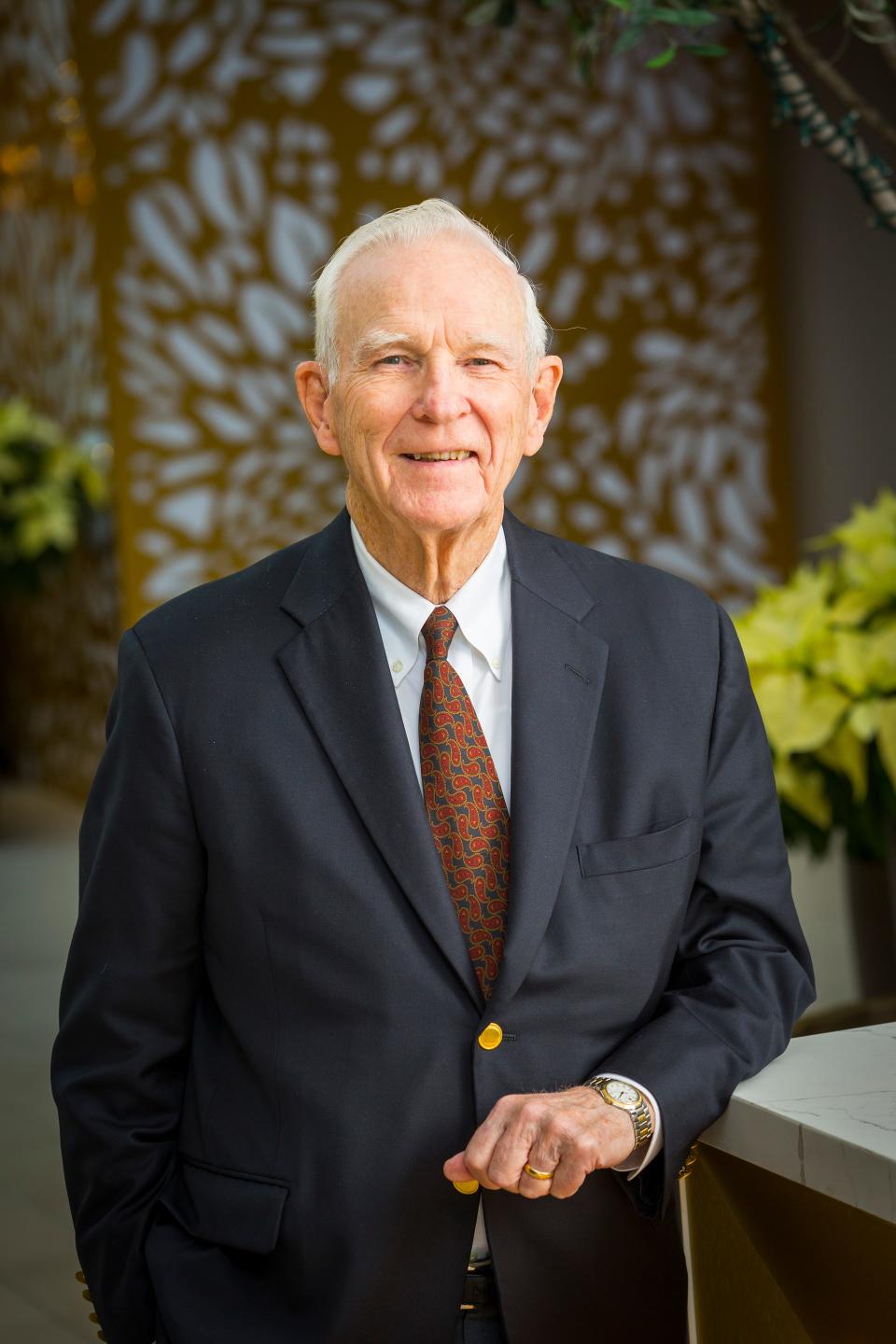
The first instance of fortuity for Howe was going to Miami University, the place where he would meet his wife Joyce and which would decades later, become the subject of much of his public service and their philanthropic focus. The next was when he was assigned to the Cincinnati sales office of the Boston paper company he worked for after graduation and where he reported to a “wonderful mentor” who went on to become CEO of that same company.
“He was transferred to the headquarters, I was assigned his management job,” said Howe. “I did that for six years and then I was also promoted to the headquarters.”
Howe left the company and returned to Cincinnati in 1970, where he purchased U.S. Precision Lens, a small optics company.
“I’d long had a desire to have my own business,” he said. Indeed, Howe already had experience owning his own business – he and a partner had a successful bicycle business on Miami’s campus in the 1950s. “Not for everyone but I liked the idea of working for myself. I wanted to build a business and have perhaps more control over my destiny than I might have otherwise.”
Under Howe's leadership, U.S. Precision Lens grew to be a juggernaut in the optics world, expanding from a dozen employees to over 600 by 1986 and dominating production of video plastic/glass hybrid optics for every world maker of projection television systems. He sold the company to Corning Inc. in 1986, remained as chairman and CEO until 1989, and was board chair until his retirement in 1997.
In 1977, in a then-uncommon move, Howe published a business philosophy – essentially, a five-part value statement. Part IV, Regarding Personal Performance, states in part: Our personal and corporate success requires that we not only adjust to change, but that we also help to bring it about.
To that end, Howe has given freely of himself to multiple corporate boards and charitable institutions. He served 47 years as a trustee of the Christ Hospital, including as chairman from 1989 to 1992. Today he remains a trustee of the Elizabeth Gamble Deaconess Home Association, the nonprofit parent of Christ. He served nine\9 years on the Miami University board of trustees, three as chairman. And since 1992, Howe and Joyce have been laser-focused on helping Miami University students become better writers and communicators through their Howe Center for Writing Excellence.
Joyce and I "believe that excellent writing is the common thread within highly successful people,” Howe said. “Every good leader and CEO I’ve known is an excellent communicator with the written word. It is a powerful personal tool to take into the workplace.”
Howe has published two books, including "A Farm Kid’s Journey," a memoir for his descendants. The other, a history of U.S. Precision Lens, shares a name with his unofficial motto.
“That would be 'Doing Interesting Things with Interesting People in Interesting Places,' ” he said.
3 questions with Roger Howe
What is a go-to piece of advice you give to others?
I don’t know that I have one. I generally think that those of us that are fortunate enough to have good things come our way have a responsibility to do good things that benefit our society and probably most of the people that attend [this] dinner have been doing that, some of them far beyond anything I’ve done.
Which civic leaders do you admire?
I was on a lot of corporate boards – I was invited to be on those boards. There were people along there that were important to me. My closest friend in Cincinnati, maybe anywhere, for many, many years was Dick Farmer, who was the founder of Cintas. He passed away recently, but he built Cintas from a company of 12 people to one of 42,000.
You’ve served on nine boards of trustees – including 47 years on the board of the Christ Hospital. Why is civic investment important to you?
As a businessperson, it’s very interesting, and I learned a lot serving on boards. I learned a great deal, and developed interesting associations. (I thought) this was an area that would be interesting to me and (would do) good things for mankind. This was a good place to do my part in civic contribution, which I think people should do and quite frankly, that’s what this whole event [is about] and what the Chamber’s done – there isn’t anybody that receives this kind of an award that hasn’t been a significant benefactor of the community in various ways.
If you go
Legacy & Promise: A Celebration of Leadership, the Cincinnati USA Regional Chamber’s annual Great Living Cincinnatians celebration, returns on Feb. 24, 2022.
Register for Legacy & Promise: A Celebration of Leadership at cincinnatichamber.com/annualdinner.
This article originally appeared on Cincinnati Enquirer: Cincinnati USA Regional Chamber Great Living Cincinnatians 2021 named

